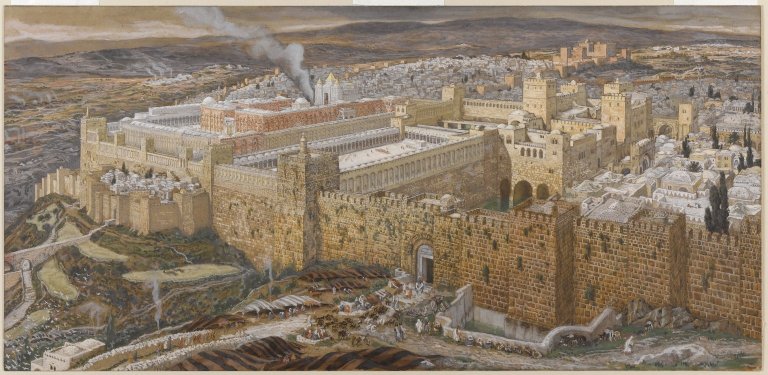2nd shortest book in OT
simple & direct
4 postexilic messages
In this period the progress in rebuilding was slow, no doubt because of the laborious task of cleaning up 60 years of rubble and the cessation of work during the numerous festivals of the seventh month.-bkc
“The truth is that few prophets have succeeded in packing into such brief compass so much spiritual common sense as Haggai did” (Frank E. Gaebelein, Four Minor Prophets: Obadiah, Jonah, Habakkuk, and Haggai, p. 199).
Interesting link that comments on depression of the people with regard to the book of Haggai. The author suggests that we should keep our "servant status" in mind when ministering to depressed people.
http://www.foundationsforfreedom.net/References/OT/Prophets/Haggai/Haggai00_Depression.html
"These cycles demonstrate how our responses to God so strongly influence our inner lives. The strong message that has been circulating in the Western world for these last decades has convinced many that spiritual things are immaterial to our daily lives. People are taught to go through these cycles without realizing the connection they have with their relationship with God. Indeed, the number of clinical cases of depression are a testimony of a world without God's gracious help. May we seek God's intervening hand in our daily lives."-Bucknell
"'Obedience always require prioritization of God' wishes and often requires the subduing of our own preferences. The scripture describes this process as 'repentance.'"-Bucknell

"The greatest difficult in obeying besides outright not want to is the fear of not being able to carry out the certain required task or change in life. Christians tend to use these 'impossibilities' as excuses. They must be very careful not to allow their discouragement carry over to doubt. Instead they should have the biblical attitude that if God calls anyone to do a certain job, then He will provide all that he will need to do it. This is true of evangelism, giving a testimony, teaching a Sunday School class, overcoming a particular sin, etc." -Bucknell
To the degree that we and others obey, He brings His Spirit upon His people to accomplish His work.-Bucknell
But what if I don't feel like I can do it?
Never go by ones feelings. We are exhorted to obey not to see whether we feel like doing it or not. The success or failure of what He has called us to is up to the Lord. Our job is simply to obey. Many early missionaries died in the field in the first five years of their work there. We might think it failure but God chalked it up as success. We might have to run counter to our feelings. This is fine. Some people think this is not right because it is going against ones true self. Any thought, action or feeling that goes counter to God's will must be rejected and finally subjected to His will. This is what being a Christian is all about. God frees us to serve Him rather than our old man and its desires.
KEY VERSE:
"Work, for I am with you, declares the LORD of hosts" -Haggai 2:4
"My Spirit remains in your midst. Fear not." -Haggai 2:5
"The third prophecy was given on the twenty-fourth day of the ninth month. The people were told to ask the priests two questions: (1) If . . . holy meat carried in the fold of a garment should touch other foods, would those other foods become holy? The priests correctly answered . . . "No." (2) If one who has become unclean through touching a dead body should touch these foods, would they become unclean? The priests correctly answered "Yes."
In other words the following was understood: "He that is holy imparts no holiness to anything else, but he that is defiled communicates defilement." Or, to put it another way, "Work and worship do not sanctify sin, but sin contaminates work and worship." This was a reminder to the people that their offerings to God were polluted and that they themselves were unclean as long as the temple was in ruins." BBC
What to make of this? In many regards it sounds like an unfair system---holiness does not transfer, but uncleanness does!
History of Haggai:

I must say, I got a lot more out of Haggai the second time digging in---it's good to look at the history again, be encouraged to focus on key people and events. Haggai---a small pithy book that is going somewhere....no frills, no elaborate visions, but he does lay the deal out.hh












